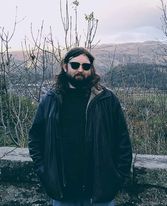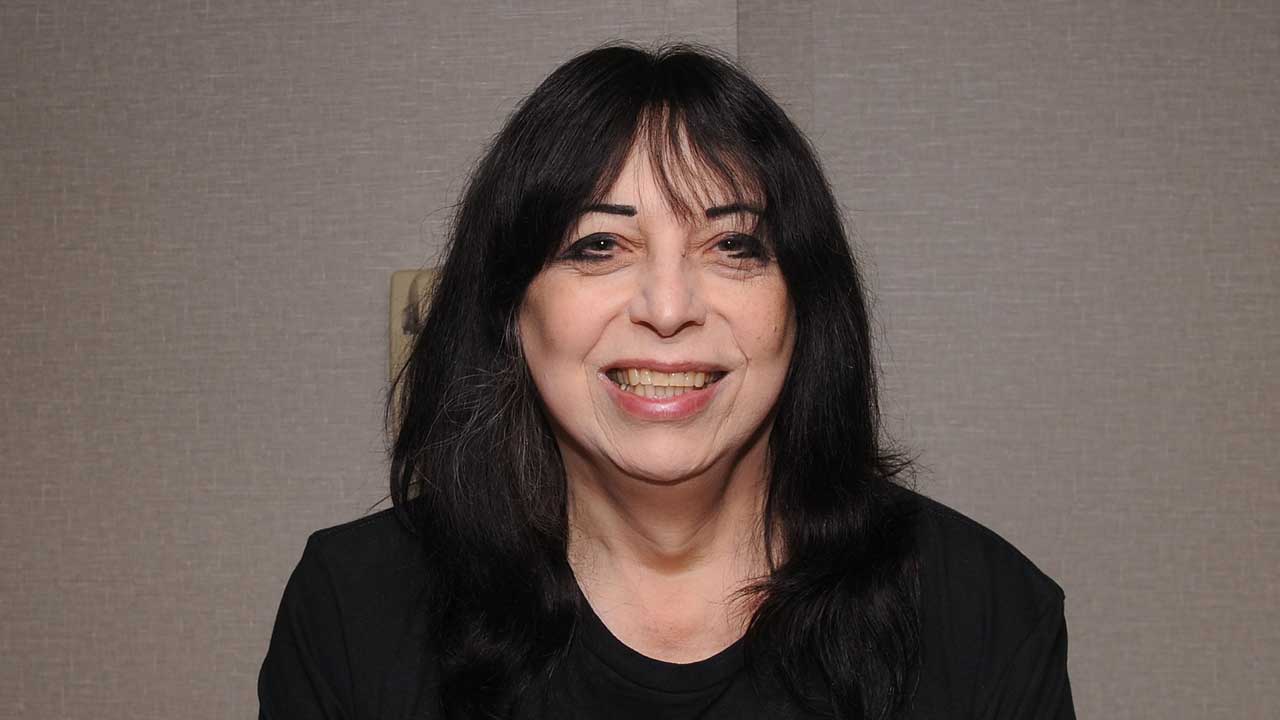Confess: Imprisoned in Iran, liberated by metal and ready to share their incredible story
In 2015, Confess were arrested in Tehran and charged with blasphemy and propaganda against the state. After finding refuge in Norway, they're making music again and ready to share their story in their own words
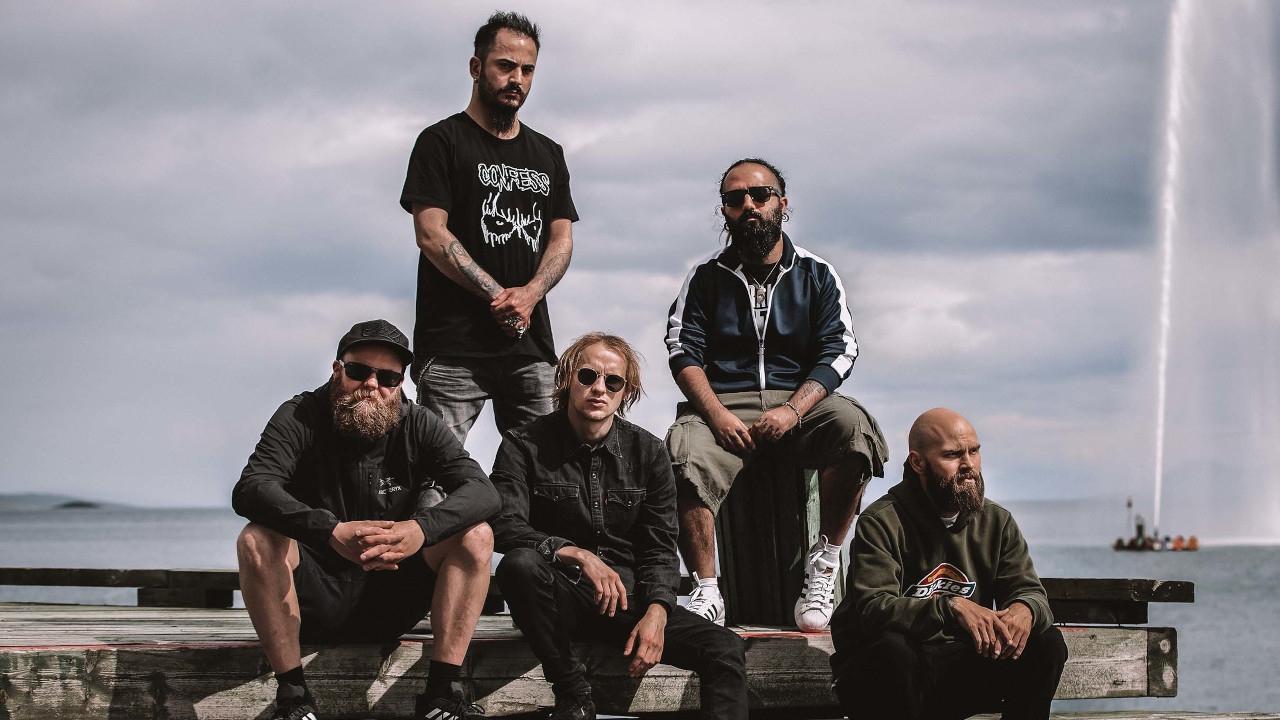
It is said that the best revenge is a life lived well. For Nikan Khosravi, the founder of Iranian metal band Confess, the very fact he is still able to live the life he wants to without fear of reprisal is an act of revenge that he savours every day. In November 2015 Khosravi was at home with his family when Iran's Revolutionary Guard arrived and arrested him on a laundry list of charges including blasphemy and propaganda, stemming from his work promoting his band.
Confess's second album In Pursuit Of Dreams had been out two weeks, but their future was thrown into question as Khosravi and bandmate Arash Ilkhani were sent to Evin prison and put into solitary confinement for months on end. The pair would ultimately be released on bail, where they appealed for political asylum and were welcomed in Norway.
Settled in the Scandinavian country, the pair set to work on their third album after gaining international attention for their plight, channelling their experiences and frustrations into Revenge At All Costs, a furious slab of groove-heavy metal with thrash and hardcore elements that evokes comparisons to everyone from Sepultura and Mastodon to Machine Head and Lamb of God. Hammer caught up with Nikan Khosravi to hear the band's incredible story.

The story of Confess has been retold countless times via a number of different news organisations, some of which you actually featured on the opening track to your new album, Based On A True Story. In your own words, can you tell us who Confess are?
“I’m Nikan Khosravi, known as Siyanor. I started making music when I was 13, which is when I started listening to Slipknot, Slayer... all these bands that changed my life. I picked up a guitar and learned to play it, then decided to form a band which later became Confess in 2010. In 2012 we released our first album after releasing a few taster tracks. We later released an EP then made a second album – after releasing that in 2015 we were arrested by the Revolutionary Guard in Tehran under charges of blasphemy and propaganda against the state.
"We knew exactly what we were doing... I want no misunderstanding about that."
Nikan Khosravi
They said the lyrical content was against the whole establishment and organised religion... which it was. There was no misunderstanding in that; we knew exactly what we were doing and saying with our music. That was the whole idea – we wanted to protest and use our human rights to express ourselves through the art we made. I want no misunderstanding about that."
Before the arrest, were you playing under pseudonyms, or maintaining anonymity?
Sign up below to get the latest from Metal Hammer, plus exclusive special offers, direct to your inbox!
“No man, I even put my home address on our about info! The government seized all my accounts like Facebook and whatever when I was arrested, but they still exist and if you go on you’ll see, I put details of my university and things on there too. We didn’t make it hard – I'd even put 'AKA Siyanor' in there!”
So were you expecting to get arrested from the off for the music Confess made?
"We had been around for three or four years and had begun to get some fans and even featured on radio shows [outside Iran]. Just as that all started to come up we were arrested. The arrest was still a surprise – I expected them to show up some day, smack me around a little bit, give me a piece of paper to sign to say I wouldn’t do it again and that’s not what happened – it was straight to jail.
"My interrogator said 'you're a threat to society so we're going to treat you like one.'"
Nikan Khosravi
I was at home when ten guys rushed into our house. They took everything they could get their hands on from my personal possessions, including the books I had as a student – even those written in English that they couldn’t read. Anything they found suspicious, they took.
They also arrested my bandmate Arash [Ilkhani, bass]. They took us into custody and then put us in solitary confinement. We spent three or four months in solitary and would be interrogated, asked questions about our music, our connections and if we knew anyone else in the scene. I got the impression they thought I was in contact with, or actually was, a spy who had infiltrated the country."
So were there only the two of you in Confess back in Iran?
“There were actually three of us. They arrested me and Arash, then during interrogations, they kept saying ‘we know there’s a third person in your band, who are they?’ But he was just a session guy we’d brought in to record in the studio and maybe kept him around for if ever we needed help live.”
There have been other bands operating in the country, was there anything you think made them react to Confess harshly?
"To most people, I’m just a musician. But to them, I’m the opposition. One of the things my interrogator said was ‘you’re a threat to society, so you will be treated as one’. These interrogations would happen every couple of weeks, then we’d be put back into a cell for 23 hours a day. After that, they transferred us to the public sector of Evin prison. After a year-and-a-half, we were released on an $80,000 bail and got taken to court.
"I cannot live my life without this music – it is the love of my life and nobody is strong enough to stop me."
Nikan Khosravi
In court, we were given six years; five years for blasphemy and one year for propaganda against the state. There were lots of other charges, but they all come under those two headings – stuff like writing lyrics about Satan would be blasphemy, while talking to foreign radio shows was propaganda. They weren’t happy that we showed Iran’s ugly face to the wider world, which was pretty funny when we were in prison because it was like ‘how much uglier can it get?’"
What did being in solitary confinement do to your mental health?
“I was once asked if I was ever tortured... well, if solitary confinement can be considered torture then yes. I’ve never been physically touched – they were fairly polite and understood we were educated people and knew what was what, but solitary confinement is literally hell in a cell. It’s you, four walls and you’re in there 23-hours a day. There’s a definite impact that you’ll deal with for the rest of your life. The only good thing to come out of that was, when lockdown hit it was like ‘hey, okay, this is my shit!’
It took quite a bit of time for me to recover from that. This is something that happened to me in 2015 and I’m still getting over it in 2021. Almost seven years have passed and it’s unbelievable that it has passed because when I was there it felt like I was going to be in there for the rest of my life. In the song EVIN there’s a line, ‘Solitary confinement will be my casket’. That was my actual thinking."
How did you cope?
"I was born to do this and I'm going to fight."
Nikan Khosravi
"Well, I also remember that the minute I was put in that cell, when the guy locked the door I looked around and thought ’this is it? You’ll need a lot more than this to stop me.’ It wasn’t a nice room, but in my head there were fears and stress, uncertainty that I might die in there or they might kill me, or that if I ever did get out maybe nobody would recognise me. There was also this determination to continue to make music; even if it meant starting over with no musicians and no picture, I’d do it all again. I cannot live my life without this music – it is the love of my life and nobody is strong enough to stop me.
I was 21-years old back then and I still can’t believe my determination. They would pull us into a room and ask for names – names of who? ‘Other musicians. We’ll say you co-operated.’ I don’t believe in God, but I swear on my honour, I never said a thing. I told them I didn’t know any bands, no musicians in the country. I knew if I gave even one name, somebody else would be in that exact same position that night. So then they’d put us under more solitary confinement. It gave me a sense of purpose – I was born to do this and I’m going to fight.”
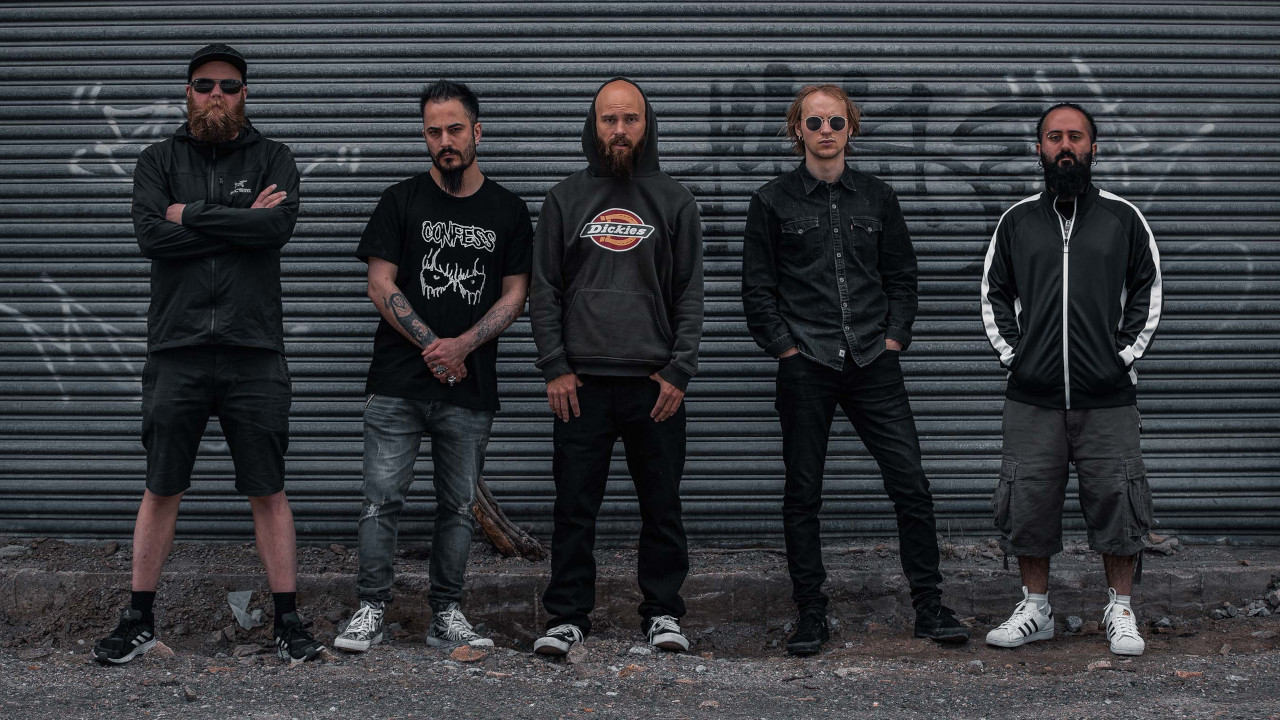
When did you know you were going to have to leave your home behind and why did you eventually settle in Norway?
"After getting that sentence I decided to leave the country because I realised it was just a joke. I lived in Turkey for a year-and-a-half but hadn’t got a passport or anything as the government in Iran had taken it from me. I started doing interviews to let the world know why the band had been silent for three/four years and got emails from charities and groups in Norway who were introducing themselves and offering to help."
How did you get to Turkey?
“Illegally. I had to cross the border – I’m not really comfortable talking about that journey, but because I didn’t have my passport it was a very tough experience. It made me understand that you really do have to live in somebody else’s shoes to fully understand them. In Iran we had so many fugitives from Afghanistan for many years, then suddenly here I was as a fugitive trying to get out of Iran. It was a meaningful period but also a very dark time for me.”
Were you surprised/relieved when Confess started receiving messages of support and offers for help from overseas?
"Attila [Csihar, Mayhem vocalist] came to our soundcheck and was like ‘you guys have a crushing sound, go crush some bones!’"
Nikan Khosravi
"Honestly, at that point I felt like nothing was gonna happen. I still sent some applications to them as Turkey isn’t all that safe for Iranian political prisoners; they have a history of handing journalists, film-makers and whatever back to Iran. I got an invitation to move to Norway as a guest musician, which is basically like a scholarship to continue my career. When I came here I also got a message from Arash, he was still in Iran but wasn’t feeling safe so he was also able to come here after I did.
The moment he arrived, in May 2019, we found out the appeals we had lodged in Iran had actually seen our sentences doubled and 74 lashes set for me. I think that was in part because I had been the guy behind the lyrics, but also because when I got out I continued to speak to foreign media. They were really pissed off about that! We’ve since completed our line-up with three Norwegian musicians who then helped us record our third album.”
Have Confess been able to play any shows since you settled in Norway?
“Oh man, we started playing shows in Oslo at the worst time possible – during lockdown! Every time it’s been lifting just a little bit we do a show and then get bumped back again. We sold out our first show in Oslo, which was awesome. Loads of Norwegian black metal artists showed up at the venue – it was crazy speaking to these people about our music.
"[People tell me] we make them proud to be Iranian and they want to be like us."
Nikan Khosravi
We played with Mayhem in June. That was a great experience, [bassist] Necrobutcher was a really nice guy. Attila [Csihar, Mayhem vocalist] came to our soundcheck and was like ‘you guys have a crushing sound, go crush some bones!’ and half the band stood side-stage while we played. We then stood watching them, before hanging out to drink vodka and talk life."
What does being in Norway mean for Confess?
“I’m very happy to say I’ve made some great friends in music here. There are so many great musicians I’ve admired who I’ve since met. I remember meeting Silenoz from Dimmu Borgir at Inferno Festival – I told him I was a musician from Iran and had been through a lot to get there and he knew who we were already as he’d read about us! He came to the Mayhem show later and showed up in the dressing room, like ‘two years ago you were there, now you’re here!’
It’s important to me to talk about freedom of expression, to talk about the pressure artists can be under no matter where they are. I’m always trying to work with organisations and artists to help draw attention to what’s going on globally. 300 journalists are currently in jail in Turkey; 150 artists are in jail in Russia; a Spanish rapper is arrested because his lyrics insulted the royal family. Nobody is probably going to die there, but hopefully together we can change something.”
Have you had any bands approach you to say Confess have inspired them?
"Metal can be a hobby for a lot of people, but it cost me a lot."
Nikan Khosravi
“Over the past couple years I’ve received several messages from musicians and bands in Iran. As we were getting bigger and we started putting music out, our message has gone out to lots of people that not only did we not quit, but we’re taking no prisoners and wasting no time. I get told we make them proud to be Iranian and they want to be like us.
Sometimes I worry I’m not worthy of that – it's a sense of responsibility that feels a little scary. Worrying that I might say or do something wrong and fail in some way, but I also realise it gives me more focus, that there’s more to this band than just five guys making music. We’ve got a lot of messages from people from South America too – I think they have similar issues with dictatorships out there so recognise a lot of what we’re saying.”
What does it mean to you to be able to make and play the music you love in Confess?
"Metal can be a hobby for a lot of people, but it cost me a lot. To some people, it’s insane that we paid that price and they think we should have just given up. But I’m happy we did – if I come back onto this planet a hundred times, I’ll do the exact same fucking thing. The satisfaction I get from being able to express myself and say what I mean, now from a country where nobody is going to knock at the door and ask ‘why did you say that?’... It’s insane. I need to use this opportunity more.
"Our fifth gig was supporting Mayhem. Who knows what the next five years could bring - maybe we'll support Metallica!"
I didn’t come here to just say ‘okay, there’s no risk now so I’m safe’, I want to accomplish a lot with our music. When we settled, people said I seemed depressed and it was because I was just desperate to go out and start making music again. I’m not here to see the town – I'm here to find new members and finish the new Confess album."
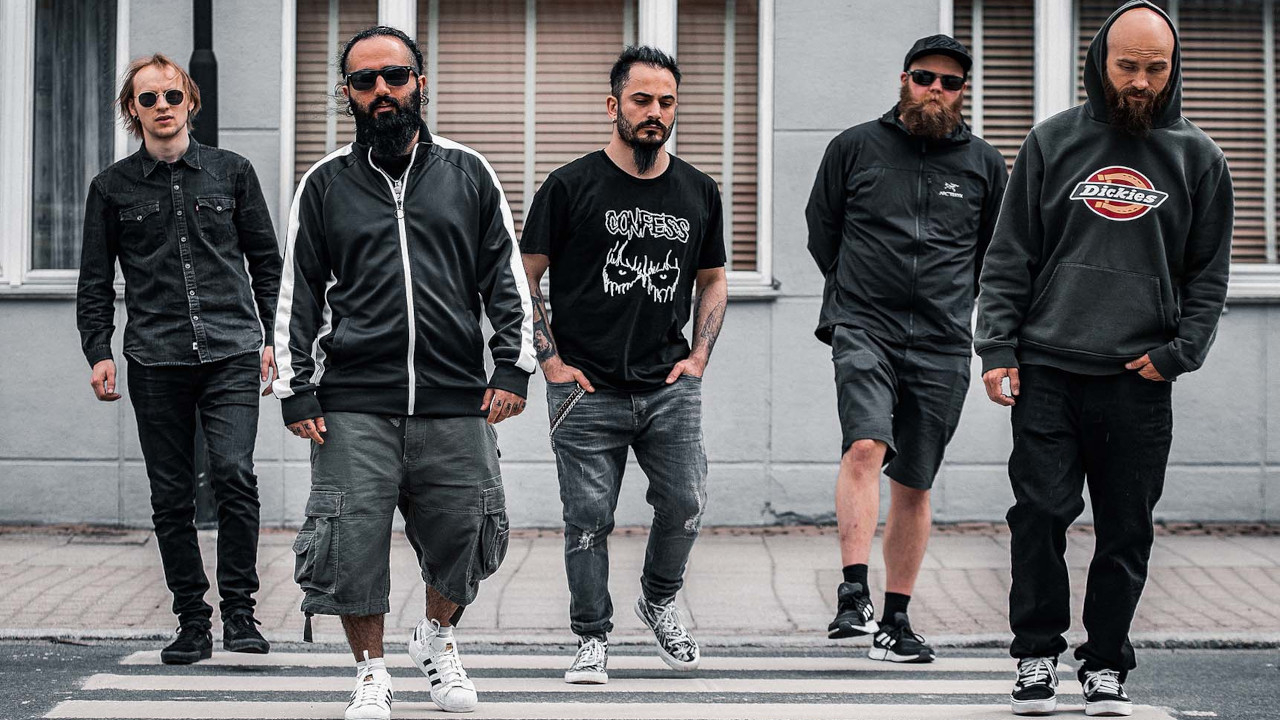
What does the new Confess album mean to you?
“Everything. I started writing this album properly while I was on bail, so there was always this idea that there would be a phonecall where somebody would say ‘actually, you’re not free’. I’d keep checking my watch – the only thing I knew that could keep me alive was this album. I had to fight back, I just didn’t know how.
For the first couple of months after I got out of jail, I hated my guitar. In the beginning, it was like ‘this music has given me life – now its taking it back tenfold’. I hated everything. But then it came back to the sense that I am who I am and couldn’t run away from my destiny.
"This album isn’t music, it’s a weapon – a weapon for revenge at all costs"
Nikan Khosravi
After that all these ideas started flooding in, the first idea coming into my head being ‘Phoenix Rises’. The first song we wrote from the album – and the first we released after leaving the country – was EVIN. The call you hear in that song at the start, is one I taped from the answering machine when I called from prison and nobody was home. This album is about different aspects of that time – about jail, about sadness from being in isolation, about hope."
And what is the meaning behind the album title, Revenge At All Costs?
"This album isn’t music, it’s a weapon – a weapon for revenge at all costs. For everything they did to me, the cost is my revenge. I’ll still do it no matter how much it costs me and how much time it takes to get it right. We finished the album originally in 2019, but then the other guys heard it and loved it, but suggested doing it again with proper equipment and a full band."
What does the future look like for Confess?
"Well, we mastered our new album with Lamb of God's producer [Machine] - I never dreamed I could do that. It might be small for someone else, but I know how much I’ve had to put in to get to this point, so getting to do something like open for Mayhem on our fifth show... crazy. What does that mean for the next five years? Maybe we could support Metallica!”
Confess's new album Revenge At All Costs is due January 21st 2022 via Rexius Records
Staff writer for Metal Hammer, Rich has never met a feature he didn't fancy, which is just as well when it comes to covering everything rock, punk and metal for both print and online, be it legendary events like Rock In Rio or Clash Of The Titans or seeking out exciting new bands like Nine Treasures, Jinjer and Sleep Token.
